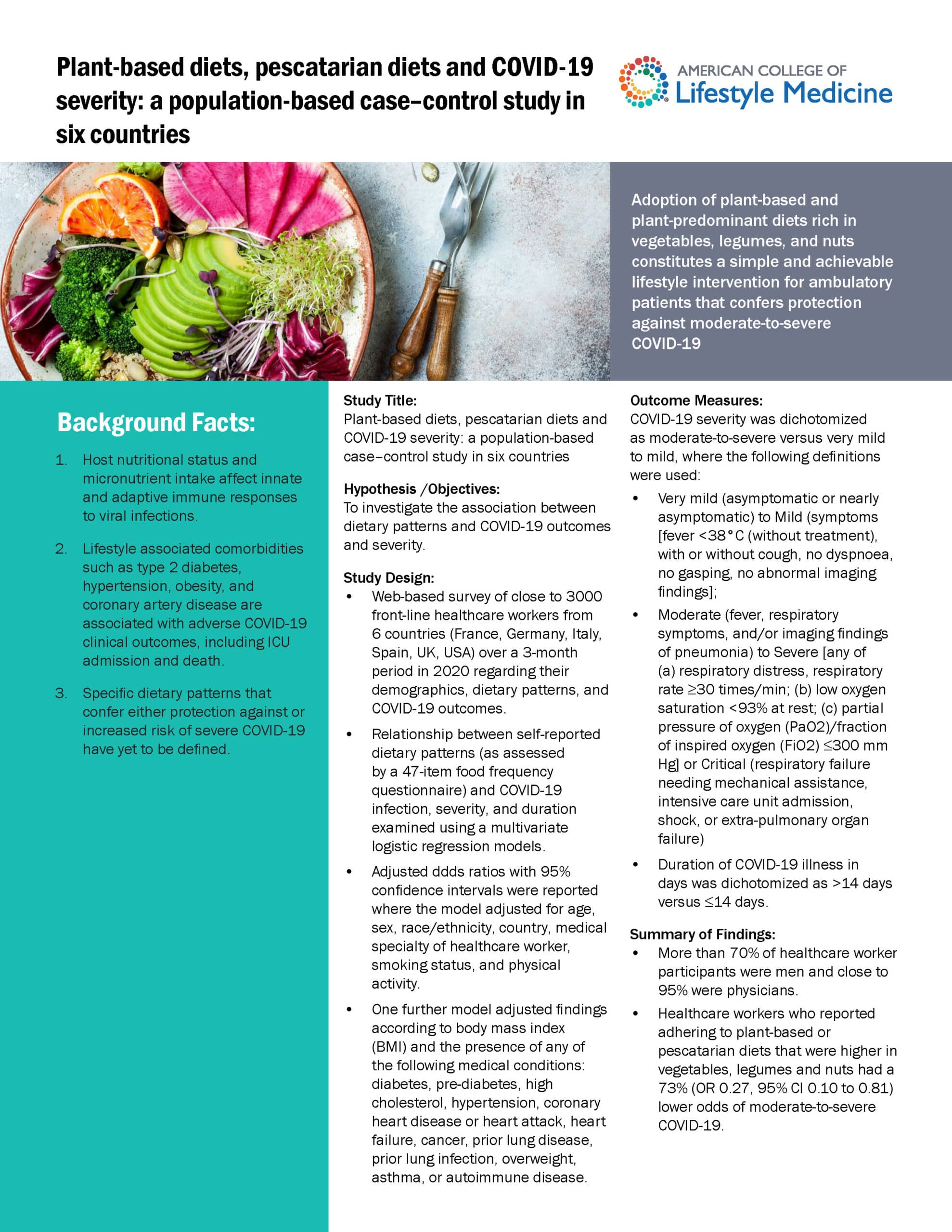COVID-19 in Adult Patients with Pre-existing Chronic Cardiac, Respiratory and Metabolic Disease: a Critical Literature Review with Clinical Recommendations
Adoption of plant-based and plant-predominant diets rich in vegetables, legumes, and nuts constitutes a simple and achievable lifestyle intervention for ambulatory patients that confers protection against moderate-to-severe COVID-19
Findings
- More than 70% of healthcare worker participants were men and close to 95% were physicians.
- Healthcare workers who reported adhering to plant-based or pescatarian diets that were higher in vegetables, legumes and nuts had a 73% (OR 0.27, 95% CI 0.10 to 0.81) lower odds of moderate-to-severe COVID-19.
- Healthcare workers who reported adhering to plant-based or pescatarian diets that were lower in poultry and red and processed meats had a 59% (OR 0.41,95% CI 0.17 to 0.99) lower odds of moderate-to-severe COVID-19.
- The associations above did not change by further adjusting the multivariate model for BMI or the presence of a medical condition as defined above.
- Compared to healthcare workers who reported adhering to ‘plant-based diets’, those who reported consuming ‘low carbohydrate, high protein diets’ had a greater odds of moderate-to-severe COVID-19 (OR 3.86, 95% CI 1.13 to 13.24).
- No associations between COVID-19 infection or duration of symptoms were observed according to dietary self-reported pattern.

